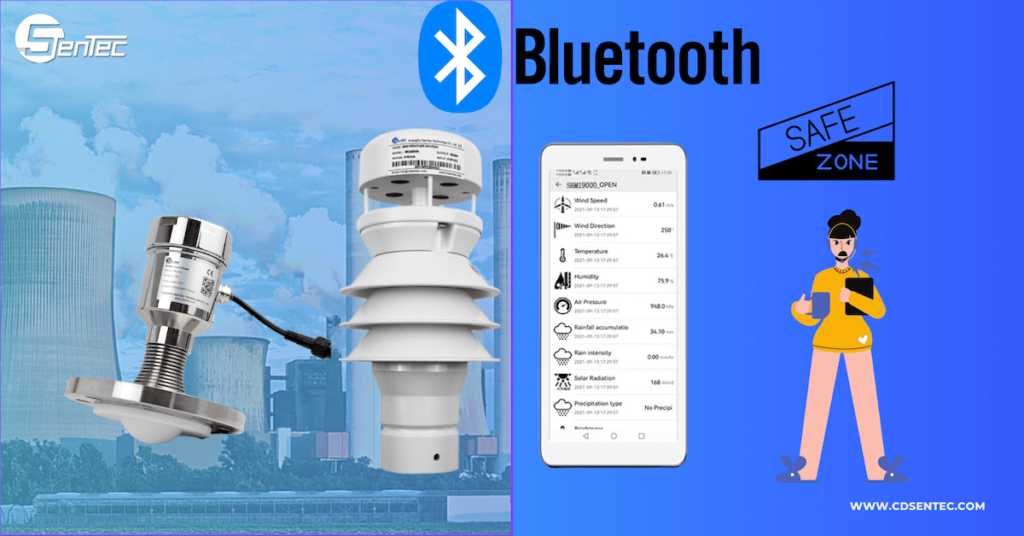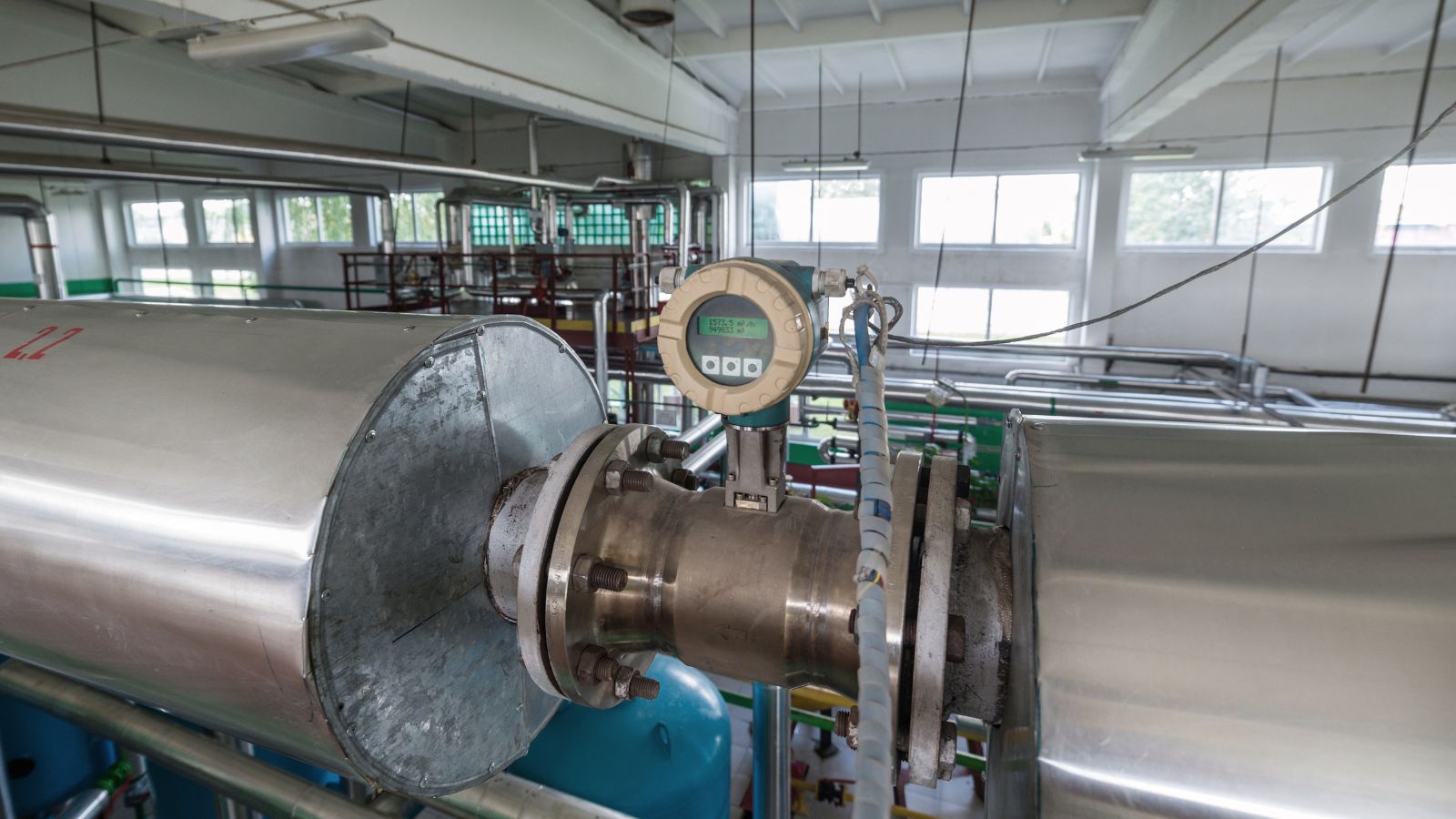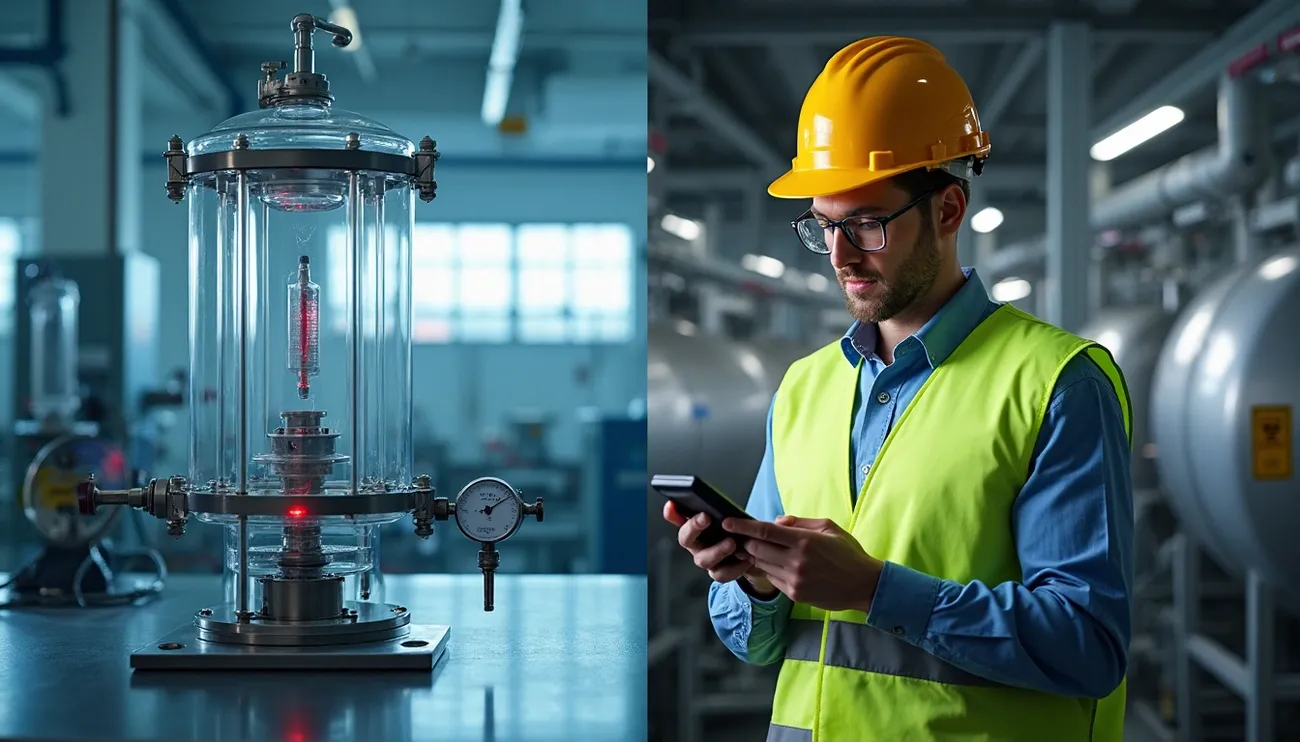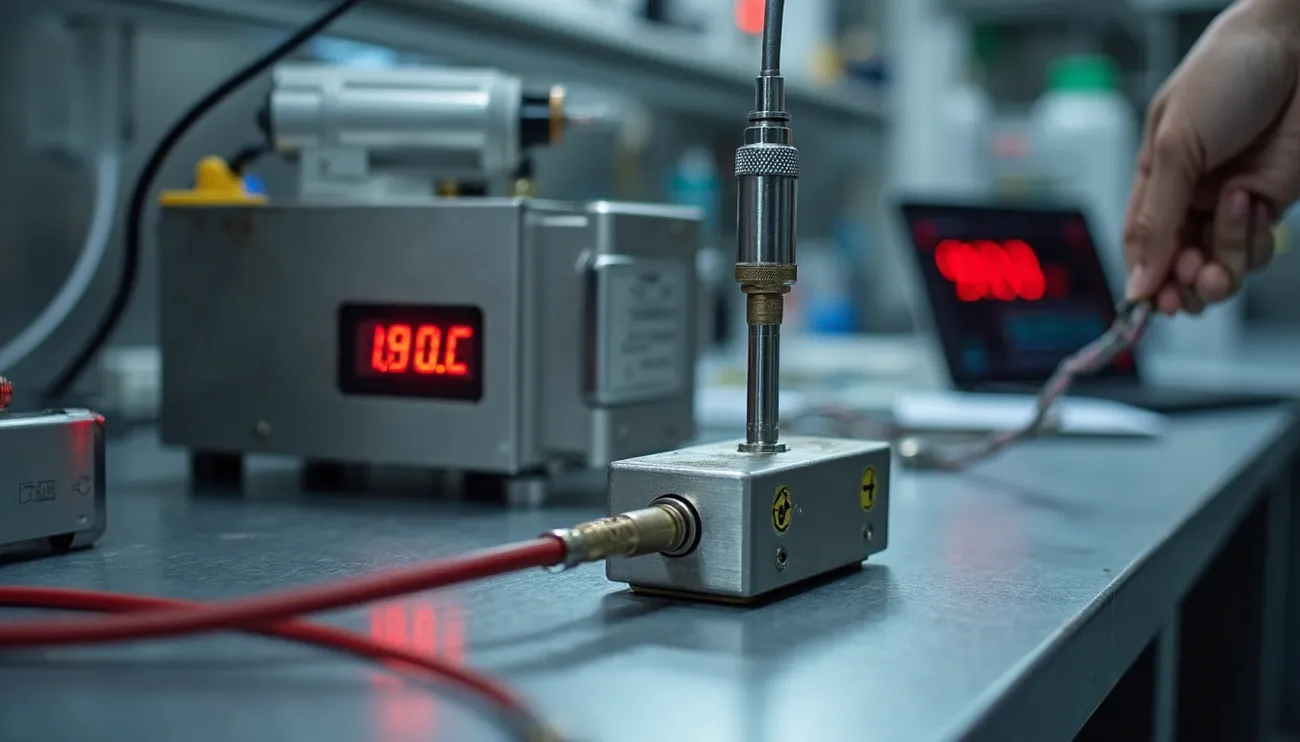Bluetooth technology, once a novelty in the consumer electronics sphere, is now making significant inroads into the industrial sector. This wireless technology, renowned for its ability to transfer data over short distances, is transforming the way industrial processes are conducted. By eliminating the need for physical connectivity, Bluetooth technology is enhancing the efficiency, reliability, and safety of industrial operations.
Bluetooth is not just a wireless communication tool but a strategic enabler of Industry 4.0. It fosters seamless interoperability, facilitates real-time data exchange, and simplifies the management of industrial devices. By harnessing the potential of Bluetooth, industries can leverage a myriad of opportunities in process instrumentation and control, the backbone of industrial automation.

The integration of Bluetooth in industrial processes is not a spontaneous phenomenon. It is the result of relentless innovation and the growing demands of the industrial sector for smarter, safer, and more efficient solutions. The following sections elucidate how Bluetooth has become a game-changer in process instrumentation and control.
Understanding Process Instrumentation and Control
Process instrumentation and control refers to the use of instruments and systems to monitor, control, and optimize industrial processes. These instruments measure and control variables such as temperature, pressure, flow, and level within a production process. The control systems, on the other hand, manage the functioning of these instruments, ensuring optimal performance and safety.
Process instrumentation and control form the lifelines of any industrial operation. From ensuring product quality to guaranteeing worker safety, these systems play a critical role in enhancing overall operational efficiency. However, traditional wired instrumentation and control systems often pose challenges such as installation complexity, high maintenance costs, and limited scalability.
Wireless technologies, especially Bluetooth, have emerged as viable solutions to these challenges. By eliminating physical connectivity, they not only simplify the installation and maintenance of instruments but also support the scalability and flexibility of control systems.
Wireless Technologies in Industrial Monitoring
Wireless technologies have redefined the landscape of industrial monitoring. By enabling remote monitoring of equipment and processes, these technologies have enhanced the safety and efficiency of industrial operations. From wireless sensors that detect potential equipment failures to wireless communication networks that facilitate real-time data exchange, wireless technologies are revolutionizing industrial monitoring.
Among the various wireless technologies, Bluetooth holds a unique position. It not only supports short-range data transfer but also enables the creation of mesh networks, which enhance the range and reliability of wireless communication. Furthermore, Bluetooth supports low-energy operation, making it ideal for battery-powered wireless sensors.
Bluetooth also supports the seamless integration of industrial devices into a common network. This interoperability facilitates the creation of intelligent industrial ecosystems, where devices can communicate and collaborate autonomously, enhancing the efficiency and effectiveness of monitoring processes.
Role of Bluetooth in Process Control Instrumentation
Bluetooth is playing a pivotal role in the transformation of process control instrumentation. By facilitating wireless communication between instruments and control systems, Bluetooth eliminates the need for physical connectivity. This not only simplifies the installation and maintenance of instrumentation systems but also enhances their reliability and scalability.
Bluetooth also supports real-time data exchange between control systems and instruments. This real-time communication is critical for maintaining optimal operating conditions within the industrial processes. By alerting control systems to potential deviations from the desired states, Bluetooth-enabled instruments help prevent process inefficiencies or failures.
Furthermore, Bluetooth supports the creation of mesh networks, enabling the connection of multiple instruments within a single network. This networked approach enhances the robustness of process control, ensuring uninterrupted operation even if a single instrument fails.
Advantages of Wireless Industrial Controls
Wireless industrial controls offer numerous advantages over their wired counterparts. They not only simplify the installation and maintenance of control systems but also enhance their efficiency and reliability.
Wireless controls eliminate the need for physical connectivity, reducing the time and cost of installation. They also reduce the risk of failures related to cable damage or disconnection. Furthermore, wireless controls support scalability, enabling industries to add or remove devices from the control system without disrupting its operation.
Wireless controls also support remote operation, enhancing the safety and convenience of industrial processes. Operators can monitor and control processes from a safe distance, reducing their exposure to potential hazards. Moreover, with remote access, operators can manage processes even outside the industrial premises, enhancing operational flexibility.
Wireless controls also support real-time data exchange, facilitating prompt and informed decision-making. By providing real-time insights into process performance, wireless controls enable operators to detect and rectify inefficiencies or anomalies promptly, enhancing process efficiency and product quality.
The Impact of Integrated Wireless Technologies on the Wireless Industries
Integrated wireless technologies are transforming the wireless industries. By enabling seamless interoperability between devices, these technologies are promoting the creation of intelligent industrial ecosystems. These ecosystems not only enhance the efficiency and reliability of industrial operations but also open new avenues for innovation and growth.
Bluetooth, with its support for mesh networking and low-energy operation, is playing a pivotal role in this transformation. By enabling the creation of extensive and energy-efficient wireless networks, Bluetooth is facilitating the integration of a multitude of devices into a common ecosystem.
This integration is not just enhancing the efficiency of existing processes but also enabling the development of new industrial applications. From predictive maintenance to remote operation, integrated wireless technologies are fostering innovation in the wireless industries, shaping the future of industrial automation.
How Controlled Access Points Improve Industrial Processes
Bluetooth is revolutionizing the field of industrial process measurement. By enabling wireless communication between measurement instruments and control systems, Bluetooth simplifies the installation and maintenance of these instruments, enhancing their reliability and scalability.
Bluetooth also supports real-time data exchange, ensuring the accuracy and timeliness of process measurements. By providing real-time insights into process variables, Bluetooth-enabled instruments enhance the efficiency and effectiveness of process control.
Furthermore, Bluetooth supports the creation of mesh networks, enabling the connection of multiple instruments within a single network. This networked approach enhances the robustness of process measurement, ensuring accurate and reliable data even if a single instrument fails.
The Future of Industrial Wireless Communication
The future of industrial wireless communication looks promising, with wireless technologies like Bluetooth leading the charge. By enabling seamless interoperability, real-time data exchange, and energy-efficient operation, Bluetooth is shaping the future of industrial automation.
The advent of Bluetooth 5, with its enhanced range, speed, and capacity, is set to further revolutionize industrial wireless communication. By supporting the creation of extensive and high-speed wireless networks, Bluetooth 5 will facilitate the integration of more devices into the industrial ecosystem, enhancing its intelligence and efficiency.
Furthermore, the development of Bluetooth Low Energy (BLE) technology promises to enhance the energy efficiency of industrial wireless communication. By supporting low-energy operation, BLE will enable the deployment of battery-powered wireless sensors and actuators, enhancing the flexibility and sustainability of industrial operations.
Case Studies: Successful Implementation of Wireless Instruments in Industries
Several industries have successfully harnessed the potential of wireless instruments, particularly Bluetooth-enabled devices, to enhance their operational efficiency and reliability.
Learn Successful Implementation of Wireless Instruments in PDF
A leading chemical manufacturer, for instance, replaced its wired temperature sensors with Bluetooth-enabled sensors to monitor the temperature of its chemical reactors. The wireless sensors not only simplified installation and maintenance but also facilitated real-time temperature monitoring, enhancing process control and safety.
Similarly, a prominent food processing company adopted Bluetooth-enabled flow meters to measure the flow rate of its processing lines. The wireless flow meters enhanced the accuracy and timeliness of flow measurements, improving process efficiency and product quality.
These case studies exemplify the transformative potential of wireless instruments in the industrial sector. By harnessing the power of wireless technologies like Bluetooth, industries can usher in a new era of process instrumentation and control.
Conclusion: Bluetooth, the New Era in Process Instrumentation and Control
Bluetooth technology, with its ability to facilitate seamless interoperability, real-time data exchange, and energy-efficient operation, is revolutionizing the field of process instrumentation and control. By simplifying the installation and maintenance of instruments, enhancing the reliability and scalability of control systems, and promoting real-time and informed decision-making, Bluetooth is shaping the future of industrial automation.
The advent of Bluetooth 5 and BLE technology promises to further enhance the efficiency, reliability, and sustainability of industrial wireless communication. By supporting the creation of extensive and high-speed wireless networks and enabling the deployment of battery-powered wireless devices, these advancements will foster the development of intelligent and sustainable industrial ecosystems.
The successful implementation of Bluetooth-enabled instruments in various industries exemplifies the transformative potential of this technology. By harnessing the power of Bluetooth, industries can usher into a new era of process instrumentation and control, characterized by efficiency, intelligence, and innovation.




